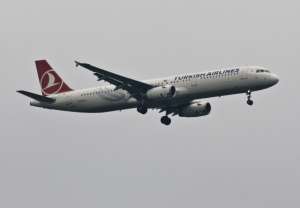The position of Janusz Wojciechowski, the European commissioner for agriculture, who recently said that the ban on grain and agri-food imports from Ukraine should be extended until the end of the year, prompted a response from the European Commission to appease the authorities in Kiev.
"At this stage, we are not in a position to comment on decisions that have not yet been made. There is no proposal on the Commission's table to extend the ban that will expire on September 15. The Commission is looking at all options and is coordinating with the relevant countries [...] to really find pragmatic solutions, work on this is in full swing. Commissioner Wojciechowski's intervention was rather a broader exchange of views, but is not based on an official position of the European Commission. Commissioner Wojciechowski's proposal must be discussed in the College of Commissioners, with all the members of the Commission, and the decision will not be taken before analyzing all the concessions", said, at the end of last week, a spokesperson of the European Executive, quoted by the euractiv website .com.
The current temporary ban on the tax on certain Ukrainian agricultural products - wheat, corn, canola and sunflower seeds - was put in place to appease frontline countries that unilaterally imposed their own trade restrictions back in April after an influx of Ukrainian agricultural products put pressure on farmers in the respective states. After a first extension on June 5, the ban is scheduled to expire on September 15, but its renewal is a point of debate within the European Commission, an institution torn between its solidarity with Ukraine and the support it must give to European states in the front line - Poland, Bulgaria, Hungary, Romania and Slovakia.
All this did not prevent the European Commissioner for Agriculture, Janusz Wojciechowski, from presenting his personal opinion on the path that the EU Executive should follow.
"If this ban is not extended, we will have the same problem [as before] with frontline member states. We want to avoid another crisis like this. There is a way to avoid repeating this problem - extending the ban - which is the best compromise solution," Janusz Wojciechowski told MEPs who are members of the European Parliament's Agriculture Committee.
He stated, however, that his proposal is not yet the official position of the European Commission, but that "he hopes it will be soon", being a proposal on the table, with which the authorities in Kiev would agree.
The fissures between the members of the European Commission appeared only a few days before the meeting of the Turkish President Recep Tayyip Erdogan with his Russian counterpart Vladimir Putin, a meeting that would take place today and which has on the agenda of discussions a possible new agreement on the transport of Ukrainian grain through the corridors of the Black Sea, given that the Russian Federation did not renew the original agreement which expired on July 17, 2023.
In connection with a new agreement on the maritime transport of Ukrainian grain, Antonio Guterres, the Secretary-General of the United Nations, submitted to Sergei Lavrov, the Russian Minister of Foreign Affairs, a set of proposals that would allow Ukrainian exports to the Black Sea, according to Reuters .
"I think I presented a proposal that could be the basis for a renewal, but a renewal that must be stable. We cannot have a Black Sea initiative that goes from crisis to crisis, from suspension to suspension. We have to have something that works for the benefit of all," Antonio Guterres said.
In contrast, Sergey Lavrov said that the Russian Federation currently sees no sign of the guarantees requested by the Kremlin for the resumption of the agreement on the transportation of grain in the Black Sea. One of Moscow's main demands is for the Russian Agricultural Bank to be reconnected to the SWIFT international payments system from which the EU disconnected it in June 2022. Even though Russian food and fertilizer exports are not subject to Western sanctions, the Kremlin authorities states that payment, logistics and insurance restrictions are preventing those shipments.
We remind you that this year, according to President Klaus Iohannis, more than 22 million tons of Ukrainian agricultural and agri-food products transited through our country for export from the port of Constanţa, and it is estimated that, until December 31, 2023, the amount exported by Ukraine through this port will exceed 40 million tons. At the end of last week, a delegation of European Commission experts was in Galati and Constanţa, where they discussed together with the Romanian authorities and US experts the ways in which the transport corridor on the Sulina arm can be strengthened, so that Ukrainian ships with grain and other agri-food products can reach the port of Constanţa, from where they can be sent to the countries of the world, via other ships large tonnage commercial.
















































